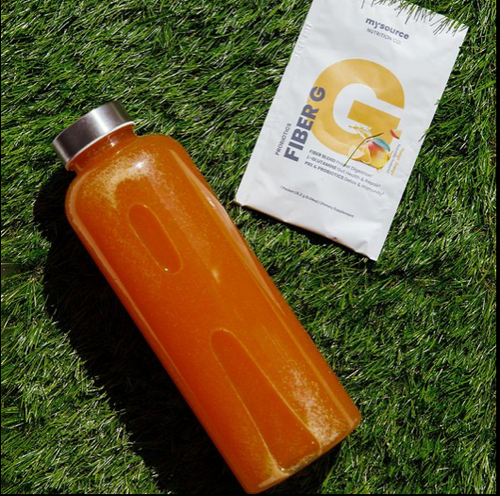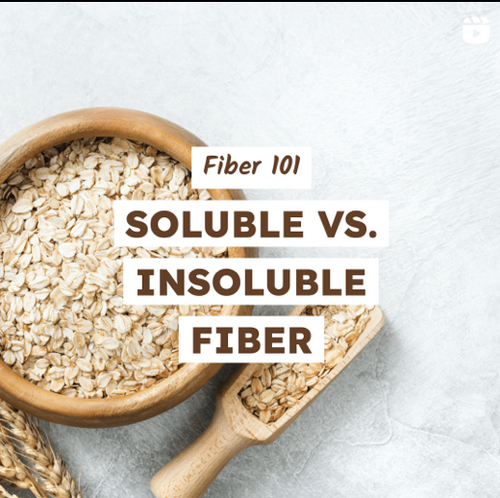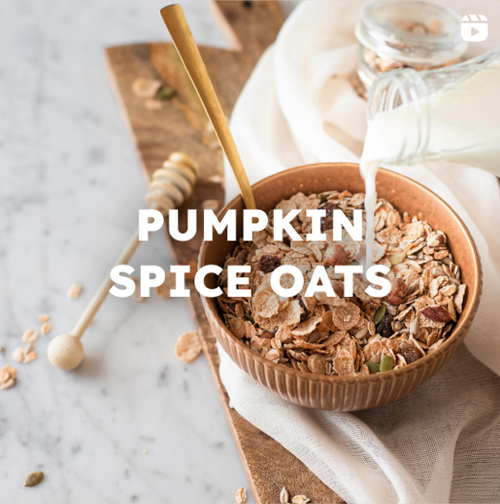Did you know that soluble fiber helps you eat less?
You need to be in a caloric deficit to loose weight. In other words, you need to consume fewer calories than you burn and for most of people this can lead to increased hunger levels and cravings. This where soluble fiber comes into play.
Reduction in appetite and improved blood sugar levels are especially evident in studies with psyllium husk. Click here to read full study. Psyllium Husk is a soluble fiber source that forms a viscous gel when mixed with water, which traps sugars as the gel moves along the intestinal tract. These trapped sugars are then slowly released and absorbed, helping to maintain balanced blood sugar levels.
Fiber is also crucial for digestive and heart health. “Fiber is not digestible, so that extra bulk is added to your stool, which helps you stay regular,” explains Linares. “Having healthy, regular digestion can have long term health benefits such as reducing the risk of colorectal cancers.” It also keeps your heart healthy by lowering blood pressure, and helping reduce LDL cholesterol, Linares adds.

What is fiber and why is fiber important?
Fiber is a type of carbohydrate and the portion of plant-derived foods (fruits, vegetables, nuts, seeds, legumes and grains) that the body can’t digest. High-Fiber foods provide various benefits including:
- Helping you to prevent and relieve constipation
- Promoting the feeling of fullness in between meals
- Helping you to lower LDL Cholesterol
- Helping you to balance blood sugar levels
How much fiber do we need a day?
The recommended daily fiber intake for Women is 21-25 grams, while Men should aim for 30-38 grams a day. Yet, more than 90 percent of women and 97 percent of men do not consume these amounts.
Below you will find several charts of some of the highest fiber foods that you can incorporate daily to boost your total fiber intake.

What are the top soluble fiber sources?
Viscous, soluble fiber is mostly found in plant foods. Some of the top foods include,
- Beans & Legumes
- Flaxseeds
- Apples
- Asparagus
- Brussel Sprouts
- Oats
Another way to add more soluble fiber into your diet is with the help of a fiber supplement that contain one or more of the following ingredients:
- Psyllium Husk
- Apple Pectin
- Guar Gum
- Glucomannan
And don't forget to add water!
Any time you add fiber to your routine, you must make sure you're drinking plenty of water, says Linares: “One of the ways fiber works is by drawing water into your stool, which helps keep you regular. This only works if you drink enough water, though." She suggests adding an extra glass of water to your routine as you build up your fiber intake.
Tag & Follow us
- @mysourcenutrition
- #FiberG #Weightloss #GutHealth #Dietaryfiber
We hope you enjoyed today's read. For more recipes & content, check out our previous blog articles.
Welcome to MySource Nutrition
We are happy to welcome you to our community. Say goodbye to occasional constipation, bloating, sugar cravings and other gut related issues with MySource's Fiber G.









